The Chinese man trapped in India for half a century
- Published
Wang Qi yearns to meet his family in China
In 1963 a Chinese army surveyor crossed into India and was captured, weeks after a war between the countries. Wang Qi has been unable to leave India ever since - and longs to see his family in China. BBC Hindi's Vineet Khare met him.
Tirodi village is a nearly five-hour drive from the nearest airport in Nagpur in central India.
I am here to meet Wang Qi, a Chinese army surveyor who entered India in 1963 but could never go back. For over five decades, he has been longing to see his family back home.
Sporting cropped white hair, black trainers and a body warmer, Mr Wang, who is now in his eighties, hugs me when we meet. We are about to try and make video contact with his family more than 3,000km (1,864 miles) away in China.
Together we go to the government office, which is the only centre equipped with internet for miles around.
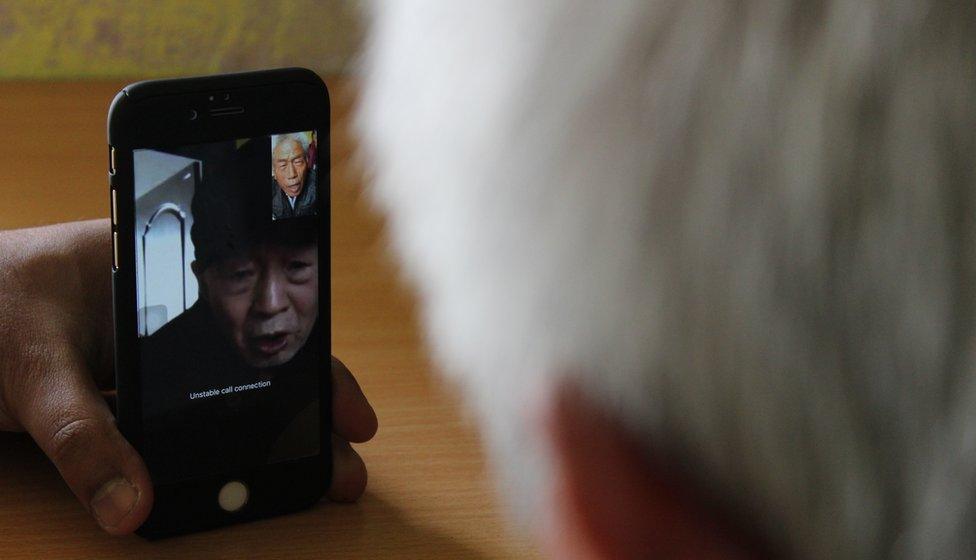
"I couldn't recognise him. He looked so old. He said he was alive just for me."
He watches in anticipation as I dial and then his eyes light up as the image of his elder brother Wang Zhiyuan, 82, appears on the screen, seated on a sofa in Xianyang, a city in China's Shaanxi province.
The two brothers are seeing each other after more than 50 years. The conversation in Mandarin lasts 17 minutes.
"I couldn't recognise him. He looked so old. He said he was alive just for me," Wang Qi, also known by his Indian name Raj Bahadur, tells me in strongly accented Hindi as his three Indian-born children gather around to comfort him.
Mr Wang's story is a long and sad one.
Born to a farmer family in Shaanxi with four brothers and two sisters, he studied surveying and joined China's People's Liberation Army in 1960.
Mr Wang says he was "tasked with building roads for the Chinese army" and was captured when he "strayed erroneously" inside India's territory in January 1963.
"I had gone out of my camp for a stroll but lost my way. I was tired and hungry. I saw a Red Cross vehicle and asked them to help me. They handed me over to the Indian army," he said.
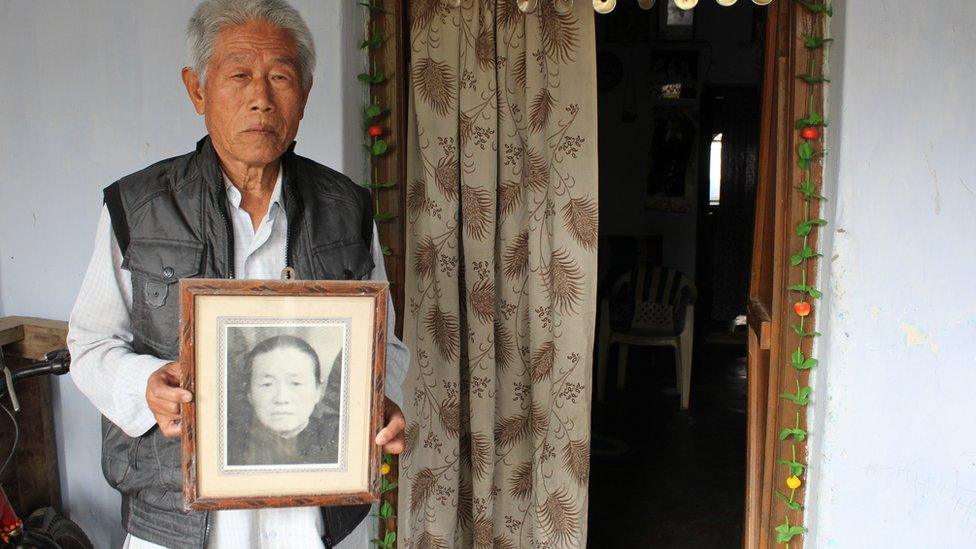
Mr Wang's mother died in 2006 before he could go back and see her
Indian officials said Mr Wang "intruded into India" and gave "false background and the circumstances" about his whereabouts to the authorities.
He spent the next seven years in a number of different jails before a court ordered his release in 1969.
Police took him to Tirodi, a far-flung village in the central state of Madhya Pradesh. He has not been allowed to leave the country ever since.
It's still not clear whether Mr Wang is a prisoner of war. But he has been denied official Indian documents or citizenship and also been denied permission to travel back. His family says Mr Wang needs a document to exit India.
Senior local official Bharat Yadav agrees that there have been "deficiencies" and a "lack of interest" in the case.
"There are no suspicions about his actions. If he wants to go back, we will try and help him," he said.
An official at the Chinese embassy, which helped him secure a passport in 2013, acknowledged he was aware of the issue. A response to questions sent to India's federal home ministry is still awaited.
It has been a long, excruciating wait for Mr Wang.
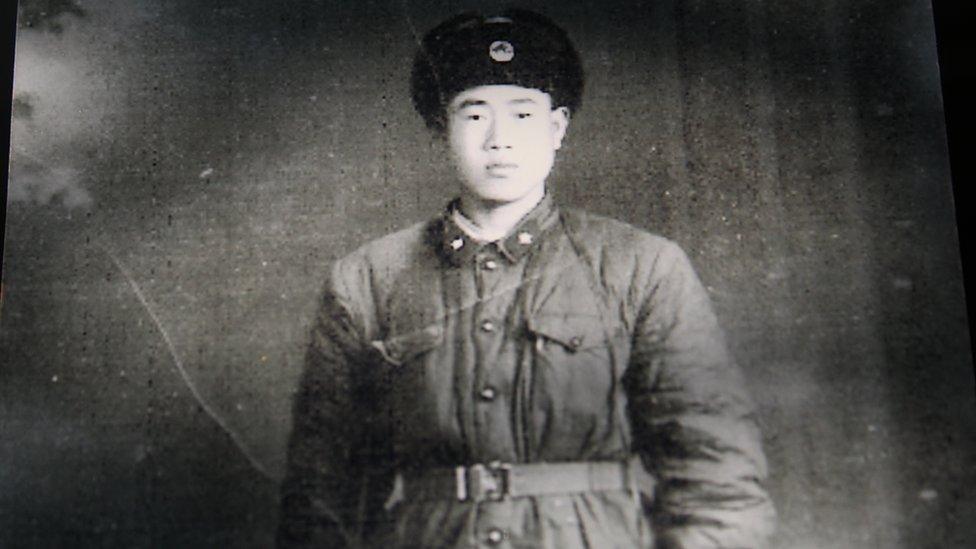
Wang Qi joined China's People's Liberation Army in 1960
Be it language, food or a vastly different society, Mr Wang has had to adapt every step of the way.
"I began by working in a flour mill. But I cried in the night as I longed for my family. I missed my mother," he said.
"I wondered what I had got into."
Mr Wang married a local girl, Sushila, under "pressure from friends" in 1975.
"I was livid with my parents for marrying me off to an outsider. I had trouble understanding his language. I tolerated him for a few months. Then I got used to him," she says with a smile.
Mr Wang tried his hand at business but his undefined legal status meant visits by local police.
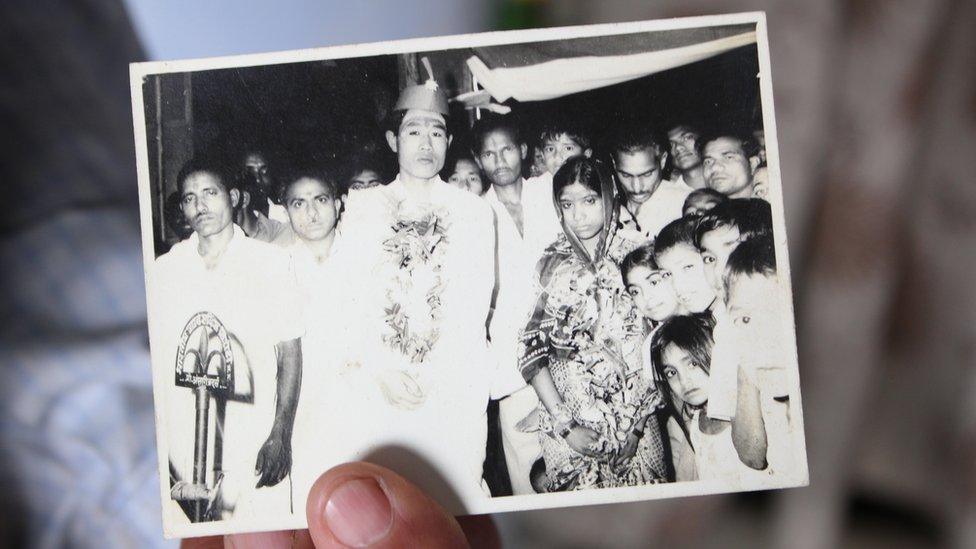
Mr Wang married a local girl, Sushila, under "pressure from friends" in 1975
"I remember Mr Wang being beaten by the police for not bribing them. He was an honest man," says BB Singh, his neighbour for many years.
"He always talked about his home in China. His family lived in utter poverty. He would cycle for miles with no break," another former neighbour Jayanti Lal Waghela says.
Mr Wang wrote letters home but received his first reply only in the 1980s. Family pictures were exchanged.
He spoke to his mother for the first time in more than 40 years on the phone in 2002.
"She said she wanted to see me as her last days were near. I said I was trying to return. I wrote letters to everyone who mattered to provide me with exit documents but nothing moved."
She died in 2006.
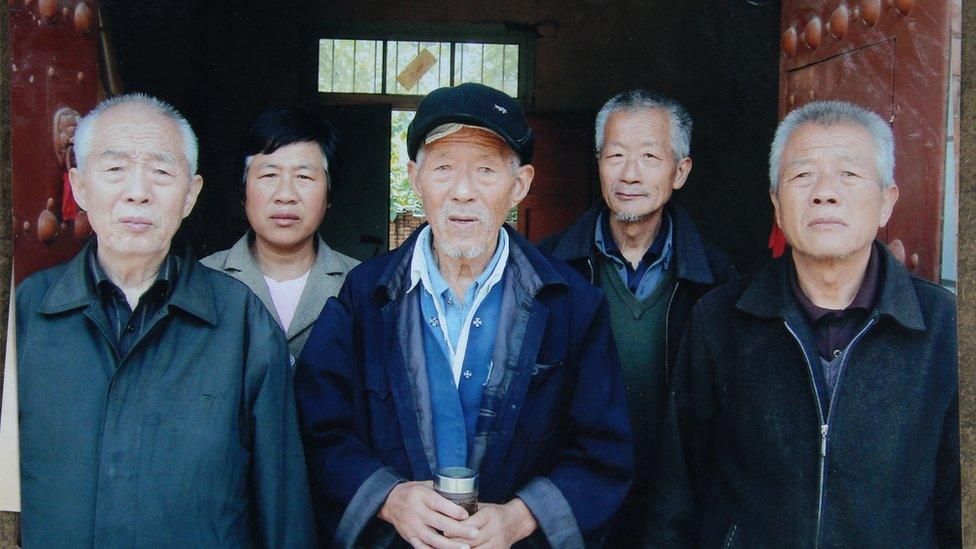
Mr Wang's family in China
Mr Wang's nephew met him when he came to India as a tourist in 2009.
It was he who helped him to get the necessary documents for his passport.
It is still not clear whether Wang Qi will be able to go to China - and if he did, would he want to return to India?
"My family is here. Where would I go?" he says, playing with his granddaughter in his lap.
Sushila is worried though. "I hope he comes back."
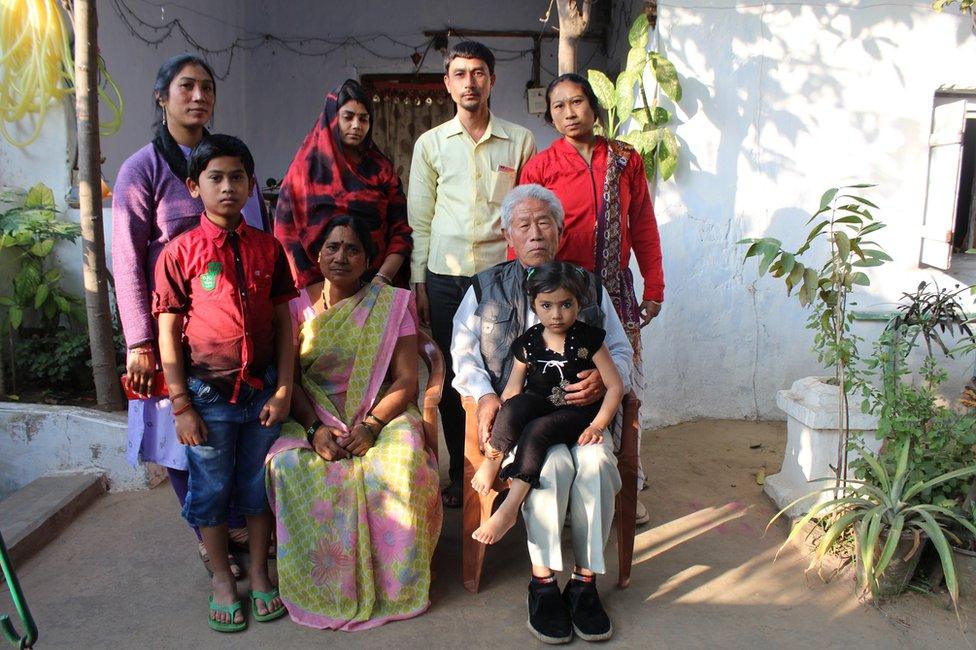
It is not clear whether Mr Wang will leave his family and return to China